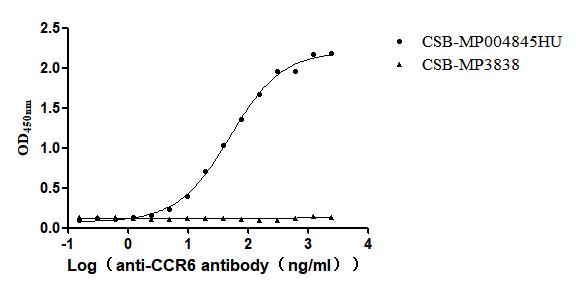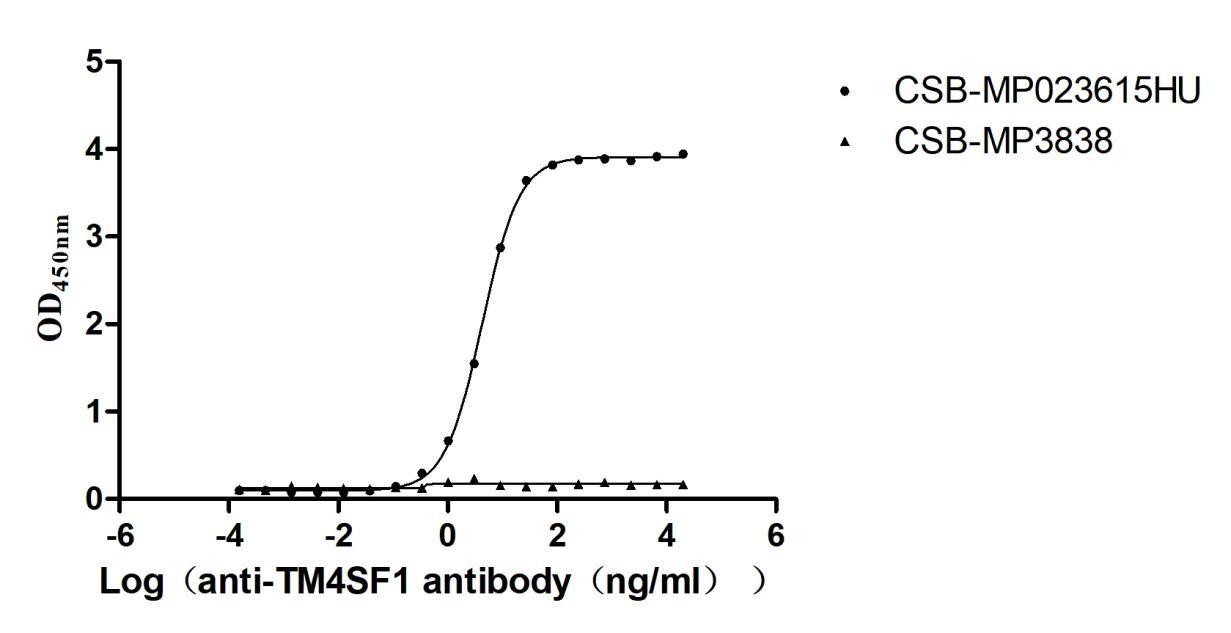Recombinant Mouse Pituitary adenylate cyclase-activating polypeptide (Adcyap1)
-
货号:CSB-YP001346MO
-
规格:
-
来源:Yeast
-
其他:
-
货号:CSB-EP001346MO
-
规格:
-
来源:E.coli
-
其他:
-
货号:CSB-EP001346MO-B
-
规格:
-
来源:E.coli
-
共轭:Avi-tag Biotinylated
E. coli biotin ligase (BirA) is highly specific in covalently attaching biotin to the 15 amino acid AviTag peptide. This recombinant protein was biotinylated in vivo by AviTag-BirA technology, which method is BriA catalyzes amide linkage between the biotin and the specific lysine of the AviTag.
-
其他:
-
货号:CSB-BP001346MO
-
规格:
-
来源:Baculovirus
-
其他:
-
货号:CSB-MP001346MO
-
规格:
-
来源:Mammalian cell
-
其他:
产品详情
-
纯度:>85% (SDS-PAGE)
-
基因名:Adcyap1
-
Uniprot No.:
-
别名:Adcyap1; Pacap; Pituitary adenylate cyclase-activating polypeptide; PACAP) [Cleaved into: PACAP-related peptide; PRP-48); Pituitary adenylate cyclase-activating polypeptide 27; PACAP-27; PACAP27); Pituitary adenylate cyclase-activating polypeptide 38; PACAP-38; PACAP38)]
-
种属:Mus musculus (Mouse)
-
蛋白长度:Cytoplasmic domain
-
表达区域:81-128
-
氨基酸序列DVAHEILNEA YRKVLDQLSA RKYLQSVVAR GAGENLGGSA VDDPAPLT
-
蛋白标签:Tag type will be determined during the manufacturing process.
The tag type will be determined during production process. If you have specified tag type, please tell us and we will develop the specified tag preferentially. -
产品提供形式:Lyophilized powder
Note: We will preferentially ship the format that we have in stock, however, if you have any special requirement for the format, please remark your requirement when placing the order, we will prepare according to your demand. -
复溶:We recommend that this vial be briefly centrifuged prior to opening to bring the contents to the bottom. Please reconstitute protein in deionized sterile water to a concentration of 0.1-1.0 mg/mL.We recommend to add 5-50% of glycerol (final concentration) and aliquot for long-term storage at -20℃/-80℃. Our default final concentration of glycerol is 50%. Customers could use it as reference.
-
储存条件:Store at -20°C/-80°C upon receipt, aliquoting is necessary for mutiple use. Avoid repeated freeze-thaw cycles.
-
保质期:The shelf life is related to many factors, storage state, buffer ingredients, storage temperature and the stability of the protein itself.
Generally, the shelf life of liquid form is 6 months at -20°C/-80°C. The shelf life of lyophilized form is 12 months at -20°C/-80°C. -
货期:Delivery time may differ from different purchasing way or location, please kindly consult your local distributors for specific delivery time.Note: All of our proteins are default shipped with normal blue ice packs, if you request to ship with dry ice, please communicate with us in advance and extra fees will be charged.
-
注意事项:Repeated freezing and thawing is not recommended. Store working aliquots at 4°C for up to one week.
-
Datasheet :Please contact us to get it.
靶点详情
-
功能:Binding to its receptor activates G proteins and stimulates adenylate cyclase in pituitary cells. Promotes neuron projection development through the RAPGEF2/Rap1/B-Raf/ERK pathway. In chromaffin cells, induces long-lasting increase of intracellular calcium concentrations and neuroendocrine secretion. Involved in the control of glucose homeostasis, induces insulin secretion by pancreatic beta cells.
-
基因功能参考文献:
- Results show that lack of pituitary adenylate cyclase-activating polypeptide (PACAP) influences molecular and biomechanical properties of bone matrix, activating various signalling cascade changes in a compensatory fashion. PMID: 30150589
- Low PACAP expression is associated with increased number of severely damaged sperms. PMID: 29101268
- results suggest that IL-6 gene requires up-regulation of phospho-JAK2/STAT3, PACAP, and PAC1R and down-regulation of the TNF-alpha gene to modulate its anticonvulsive/neuroprotective potential PMID: 29673861
- The data presented here shows PACAP38 transport is temporally altered following controlled cortical impact -treatment and PACAP38 uptake is greater in the cerebellum compared to the cortices PMID: 29107653
- In conclusion, Pituitary adenylate cyclase activating polypeptidecan attenuate Mitoxantrone -mediated left ventricular dilation and dysfunction in mice. PMID: 28720396
- This study shown the model of depression in PACAP mutation mice. PMID: 28450265
- PACAP/PAC1 signaling is important for light regulated behavior, VIP/VPAC2 signaling for stable clock function and both signaling pathways may play a role in shaping diurnality versus nocturnality. PMID: 29155851
- Results suggests that PACAP regulates a bidirectional interaction between the adult neural progenitor cells and their niche: PACAP modifies extracellular matrix production and remodeling, in turn the extracellular matrix regulates progenitor cell adherence. PACAP may in this manner help restrict adult neural progenitors to the stem cell niche in vivo. PMID: 28523979
- age-related changes were observed in the PACAP KO mice only. These alterations included horizontal and rod bipolar cell dendritic sprouting into the photoreceptor layer and decreased ganglion cell number. Also, Muller glial cells showed elevated GFAP expression compared to the aging WT retinas. PMID: 28215987
- Mice lacking endogenous PACAP have slower weight gain during the first weeks of development and slower neurobehavioral development. PMID: 28168413
- Study investigated effects of chronic variable mild stress (CVMS) in non-injected, vehicle and imipramine-treated KO mice vs. wildtype (WT) counterparts and mapped the CVMS-related FosB response in 18 brain areas; found that PACAP deficiency affects neuronal reactivity in a brain area-specific manner in stress centers PMID: 27282087
- Backup mechanisms maintain PACAP/VIP-induced arterial vasodilation in PACAP-deficient mice. PMID: 28490016
- PACAP/PAC1 signaling has a role in light regulated food anticipatory activity PMID: 26757053
- PACAP deficient mice exhibit attenuated acute restraint stress response and chronic restraint stress response. PMID: 25853791
- not only homozygous but also heterozygous PACAP deficient mice are more vulnerable to kidney ischemia/reperfusion, further supporting the nephroprotective effects of the endogenous PACAP PMID: 26361682
- PACAP expression in the dorsal root ganglion following spinal nerve injury is controlled through transcriptional repressor, REST. PMID: 26518165
- This study demonstrated that Human mesenchymal stem/stromal cells suppress spinal inflammation in mice with contribution of pituitary adenylate cyclase-activating polypeptide. PMID: 25889720
- PACAP shows morphological actions via its cognate receptor PAC1. PMID: 25807538
- This study suggests that PACAP(-/-) mice are an ideal rodent model with predictive validity for the study of ADHD etiology and drug development. PMID: 25841321
- PACAP protects glomerular podocytes from inflammatory injuries PMID: 25821833
- PACAP targets RCAN1 to control neuronal differentiation. PMID: 26157140
- PACAP is up regulated in neurogenic inflammation in murine skin. PMID: 25905588
- summarises the current understanding of the possible roles of PACAP and PAC1R in modulating hypothalamus and pituitary neuroendocrine cells in the mouse models PMID: 25303162
- In PACAP-deficient mice with serum-transfer arthritis, joint swelling, vascular leakage, hyperalgesia, and early inflammatory cell accumulation are reduced; in the later phase of the disease, immune cell function and bone neoformation are increased. PMID: 25048575
- the normal cold-induced increase in the basal metabolic rate and norepinephrine-induced increase in thermogenesis were severely blunted in cold-exposed Pacap(-/-) mice PMID: 25056115
- PACAP is a crucial mediator of neuropathic mechanical hyperalgesia and neurogenic vasodilation. PMID: 23499760
- PACAP activates ERK signaling during adipogenesis. PMID: 24039785
- PACAP blocks canonical Shh signaling by a mechanism that involves activation of protein kinase A (PKA) and inhibition of the translocation of the Shh-dependent transcription factor Gli2 into the primary cilium. PMID: 23872071
- PACAP may play a significant role in the complex interactions of gonadotropin and growth factors during ovulation and fertilisation. PMID: 23684890
- Data suggest that PACAP regulates expression of SelT (selenoprotein T) in pancreatic beta- and delta-cells and is involved in control of insulin secretion and, thus, glucose homeostasis. PMID: 23913443
- The results indicate that endogenous PACAP acts to maintain the integrity of DA neurons during exposure to PQ, an action that may be linked to its ability to regulate microglia and/or other immune cells. PMID: 23500093
- Chronically elevated corticosterone is a key component of depressive effects of social defeat, and attenuation of the CORT response in PACAP-deficient mice protects from development of depressive behavior. PMID: 23062748
- constitutive expression of PACAP may confer neuroprotection to central visceromotor neurons in a mouse model of amyotrophic lateral sclerosis PMID: 23466699
- PACAP-/- mice at postnatal day 7 show respiratory arrest in response to hypoxia. PMID: 23136967
- The results of this study suggested that PACAP elicits temporally specific effects on cortical proliferation via developmentally regulated expression of specific receptor isoforms. PMID: 23447598
- Our novel findings document the importance of PACAP-mediated cAMP-PKA signaling in hepatic homeostasis and cytoprotection in vivo. PMID: 22532103
- PACAP protects neurons and other tissues against ischemic, toxic, and traumatic lesions. Review. PMID: 22528455
- With cyclophosphamide-induced cystitis, PACAP transcript expression significantly increased in the urothelium (48 h) and detrusor (4 h) of NGF-OE mice. PMID: 22700375
- PACAP overexpression reduced the insulin levels required to compenstate for hyperglycemia. PACAP is involved in the regulation of hyperinsulinemia and islet hyperplasia in type 2 diabetes. PMID: 22477644
- Both the longitudinal and transverse sperm head diameters were significantly lower in PACAP deficient mice, without marked difference in the shape. Lack of endogenous PACAP leads to abnormal sperm morphology. PMID: 22638857
- PACAP mRNA increased gradually for 14 days after spinal cord injury and has a neuroprotective effect on the damaged spinal cord. PMID: 22674051
- The increased immunoreactivity of Ca2 binding proteins in the absence of PACAP provide further evidence the important role of PACAP in the hearing processes. PMID: 22203609
- PACAP and VIP are endogenous mediators that likely regulate immunity and immune-mediated diseases within the skin. PMID: 22531916
- propose that PACAP exerts a brain area-specific effect on stress-induced neuronal activation and it might contribute to stress-related mood disorders PMID: 22178610
- Data suggest that endogenous PACAP exerts an inhibitory role on myelination in vivo. PMID: 21726625
- The esults clearly show that endogenous PACAP reacts as a stress-response peptide that is necessary for endogenous protection against different retinal insults. PMID: 21717232
- PACAP affects gonadotropin expression and sexual maturation in vivo PMID: 22315445
- Pituitary adenylate cyclase-activating polypeptide 38 ameliorated renal tubular injury, and reduced oxidative injury PMID: 21383633
- stimulation with exogenous PACAP and native neuronal stress stimulation both lead to a PKC-mediated phosphodependent recruitment of a T-type Ca(v)3.2 Ca(2+) influx, which in turn evokes catecholamine release during the acute sympathetic stress response PMID: 22009744
- Endogenous PACAP is partly involved in survival of the enriched environment-induced generation, but not in the basal rate, of newborn cells in the dentate gyrus of the adult hippocampus. PMID: 20974227
显示更多
收起更多
-
亚细胞定位:Secreted.
-
蛋白家族:Glucagon family
-
数据库链接:
KEGG: mmu:11516
STRING: 10090.ENSMUSP00000067057
UniGene: Mm.3407
Most popular with customers
-
Recombinant Human Leukocyte surface antigen CD47 (CD47), partial (Active)
Express system: Mammalian cell
Species: Homo sapiens (Human)
-
Express system: Mammalian cell
Species: Homo sapiens (Human)
-
Recombinant Human Zymogen granule protein 16 homolog B (ZG16B) (Active)
Express system: Mammalian cell
Species: Homo sapiens (Human)
-
Recombinant Human V-set and immunoglobulin domain-containing protein 4 (VSIG4), partial (Active)
Express system: Mammalian cell
Species: Homo sapiens (Human)
-
Recombinant Human Interleukin-17A (IL17A) (T26A) (Active)
Express system: Baculovirus
Species: Homo sapiens (Human)
-
Recombinant Human Claudin-6 (CLDN6)-VLPs, Fluorescent (Active)
Express system: Mammalian cell
Species: Homo sapiens (Human)
-
Recombinant Human C-C chemokine receptor type 6(CCR6)-VLPs (Active)
Express system: Mammalian cell
Species: Homo sapiens (Human)
-
Recombinant Human Transmembrane 4 L6 family member 1(TM4SF1)-VLPs (Active)
Express system: Mammalian cell
Species: Homo sapiens (Human)


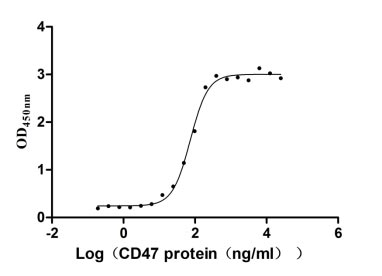
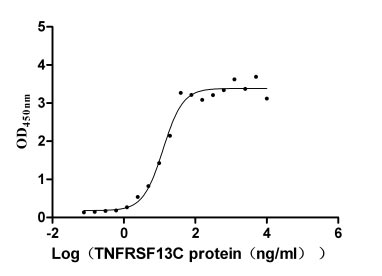

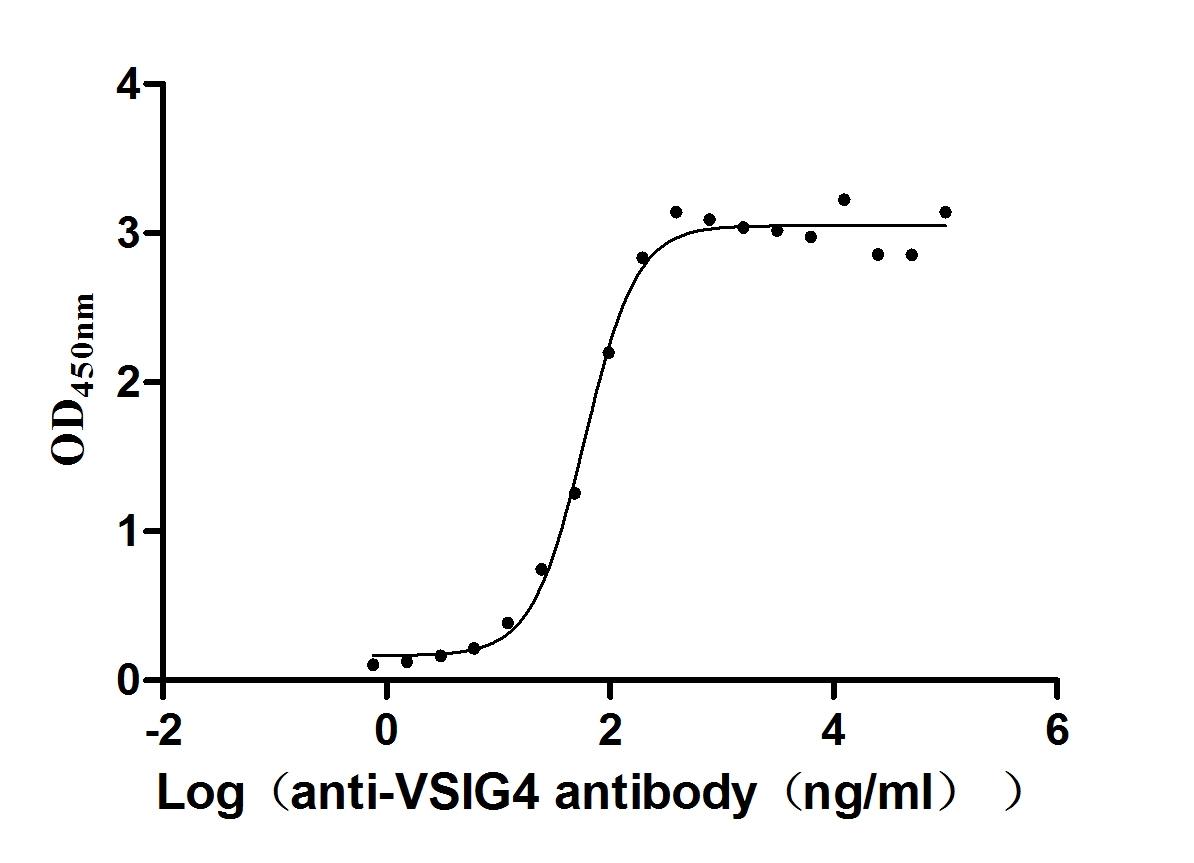
-AC1.jpg)
f4-AC1.jpg)
